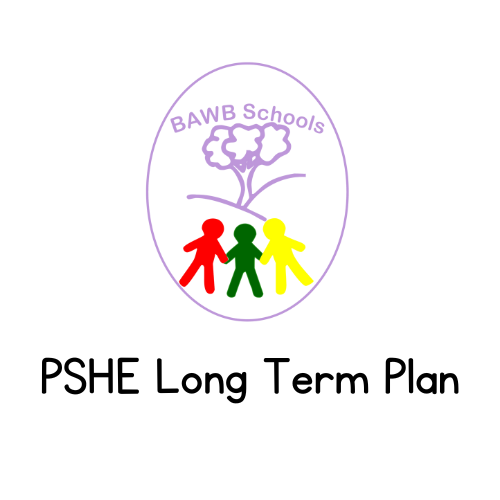
We are delighted that our schools have been awarded a bronze Healthy Schools award for the quality of our Personal, Social, Health and Economic (PSHE) education. The North Yorkshire PSHE adviser found that the leadership of the subject was strong and the majority of children spoke confidently about their learning from the curriculum.
Intent
Personal, social, health and economic (PSHE) education is a planned, developmental programme of learning through which children acquire the knowledge, understanding and skills they need to manage their lives now and in the future. It equips pupils to live healthy, safe, productive, capable, responsible and balanced lives.
PSHE education contributes to personal development by helping pupils to build their confidence, resilience and self-esteem. It also supports them to identify and manage risk, make informed choices and understand what influences their decisions.
At the BAWB Federation, we believe that PSHE education can help reduce or remove barriers to learning and significantly improve their capacity to learn and succeed. It makes a significant contribution to pupils’ spiritual, moral, social and cultural (SMSC) development, their behaviour and safety and supports the schools’ statutory responsibility to promote pupil wellbeing. In addition, the learning provided within the PSHE programme of learning is essential to safeguarding pupils.
This page should be read alongside our relationships, sex education policy (RSE). This sets out the ways in which our federation supports learning about the emotional, social and physical aspects of growing up, relationships, sex, human sexuality and sexual health.
We recognise the right of all pupils to have access to a PSHE education which meets their individual needs and we ensure pupils with SEND receive access to PSHE through well-differentiated lessons that plan for their individual needs.
Implementation
No Outsiders
We use the No Outsiders resources to support all our children to help make our schools as inclusive as possible. These resources include weekly assemblies that explore protected characteristics and aim to prepare our children to be kind and caring citizens of modern Britain. Every half term, every class explores a book from the No Outsiders booklist that looks at one of these characteristics in more depth in an age-appropriate way.
Programme of Study
The BAWB Federation uses the Jigsaw Scheme of Learning for our weekly PSHE lessons. This mindful approach to the subject brings together Personal, Social, Health Education, emotional literacy, social skills and spiritual development in a comprehensive scheme of learning. Jigsaw is designed as a whole school approach, with all year groups working on the same theme (Puzzle) at the same time. This enables each Puzzle to start with an introductory assembly, generating a whole school focus for adults and children alike.
Lesson Structure
PSHE lessons in all classes across the BAWB Federation take place on a weekly basis and typically last between 1 hour and 45 minutes.
Being Me In My World covers a wide range of topics, including a sense of belonging, welcoming others and being part of a school community, a wider community, and a global community; it also looks at children’s rights and responsibilities, working and socialising with others, and pupil voice.
Celebrating Difference focuses on similarities and differences and teaches about diversity, such as disability, racism, power, friendships, and conflict; children learn to accept everyone’s right to ‘difference’, and most year groups explore the concept of ‘normality’. Anti-bullying, including cyber and homophobic bullying, is an important aspect of this Puzzle.
Dreams and Goals aims to help children think about their hopes and dreams, their goals for success, what their personal strengths are, and how to overcome challenges, using team-work skills and tasks. There is also a focus on enterprise and fundraising. Children learn about experiencing and managing feelings of pride, ambition, disappointment, success; and they get to share their aspirations, the dreams and goals of others in different cultures/countries, and their dreams for their community and the world. It’s great for children to have this experience, to think ambitiously, and to have aspirations.
Healthy Me covers two main areas of health: emotional/mental health (relaxation, being safe, friendships, mental health skills, body image, relationships with food, managing stress) and Physical health (eating a balanced diet, physical activity, rest and relaxation, keeping clean, drugs and alcohol, being safe, first aid). Most of the statutory content for Health Education (DfE) is contained within this Puzzle.
Relationships starts with building a respectful relationship with self and covers topics including families, friendships, pets and animals, and love and loss. A vital part of this Puzzle is about safeguarding and keeping children safe; this links to online safety and social networking. Children learn how to deal with conflict, build assertiveness skills, and identify their own strengths and strategies for building self-esteem and resilience. They explore roles and responsibilities in families and friendship groups, and consider stereotypes.
Changing Me deals with change of many types, from growing from young to old, becoming a teenager, assertiveness, puberty, self-respect and safeguarding. Each year group thinks about looking ahead, moving year groups or the transition to secondary school and how to cope positively with such changes. Life cycles and human reproduction are taught in some year groups at the school’s discretion. Jigsaw has produced a separate leaflet explaining the approach taken with Relationships and Sex Education. Your child’s school can make this available to you on request.
There are numerous additional aspects of the Jigsaw Programme to enhance the learning experience, including the Jigsaw Friends (jigsaw-shaped soft toys used as teaching aids), Jigsaw Chimes and Jigsaw Jerrie Cats (used to help and encourage calming and mindfulness practice).
Every Jigsaw lesson includes mindfulness practice. Mindfulness is being able to observe your own thoughts and feelings as they happen, in the present moment, applying no judgement. Jigsaw teaches children to understand their thoughts and feelings through the Calm Me time exercises (using the Jigsaw Chime) and Pause Points (using Jigsaw Jerrie Cat). This helps to develop their awareness, and their capacity to be mindful human beings. Learning is thus enhanced as emotions and behaviour are self-regulated.
Impact
Evidence and Assessment
Tracking Pupil Progress: Ages 8-9
We use the Jigsaw summative assessment tools to support us to track the progress of each child and any gaps that need filling.
This assessment tool has a table with three summative attainment descriptors for each Puzzle (unit of work). Each descriptor has two elements, the purple being specific to Personal, Social, Health and Economic education, and the green having a social/emotional focus.
The class teacher uses this table to identify gaps. This allows appropriate support to be identified for individual children in future Jigsaw lessons and as part of our pastoral care.
If you would like more information, please contact our PSHE lead, Mary Park, m.park@b-a-wb.co.uk

